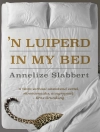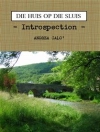In Canadian Wetlands, Rod Giblett reads the Canadian canon against the grain, critiquing its popular representation of wetlands and proposing alternatives by highlighting the work of recent and contemporary Canadian authors, such as Douglas Lochhead and Harry Thurston, and by entering into dialogue with American writers. The book will engender mutual respect between researchers for the contribution that different disciplinary approaches can and do make to the study and conservation of wetlands internationally.
Table of Content
Chapter 1: Canadian wetlands culture: Past and present
Chapter 2: Wetlands in anglophone pioneer settler literature and nature writing of the Canadian canon
Chapter 3: ‘In the Acadian land’ of Evangeline: The marshlands of Grand Pré, the wetlands of the Bay of Fundy and Longfellow’s literary legacy
Chapter 4: ‘The marsh lies rich and wanton’: The Tantramar Marshes, Charles G. D. Roberts and Douglas Lochhead
Chapter 5: ‘Noisome marsh’ and ‘incurable marshes’: Wainfleet Bog, Point Pelee Marshes and the falls on the Niagara Peninsula
Chapter 6: ‘A swampy flat’: Vancouver and the wetlands of the Fraser River delta
Chapter 7: A city ‘set in malarial lakeside swamps’: Toronto and Ashbridge’s Bay Marsh
Chapter 8: ‘Land and water disputed empire’: Holland Marsh, John Muir and Henry David Thoreau
Chapter 9: ‘Quaking morass’: The marshes of Manitoba, Frederick Philip Grove and Aldo Leopold
Chapter 10: ‘Smelling the Old Marsh, I knew I was home’: Harry Thurston’s marshes of Nova Scotia and the future of Canadian wetlands culture
About the author
Emily Potter is a Senior Lecturer in the School of Communication and Creative Arts at Deakin University in Australia.












